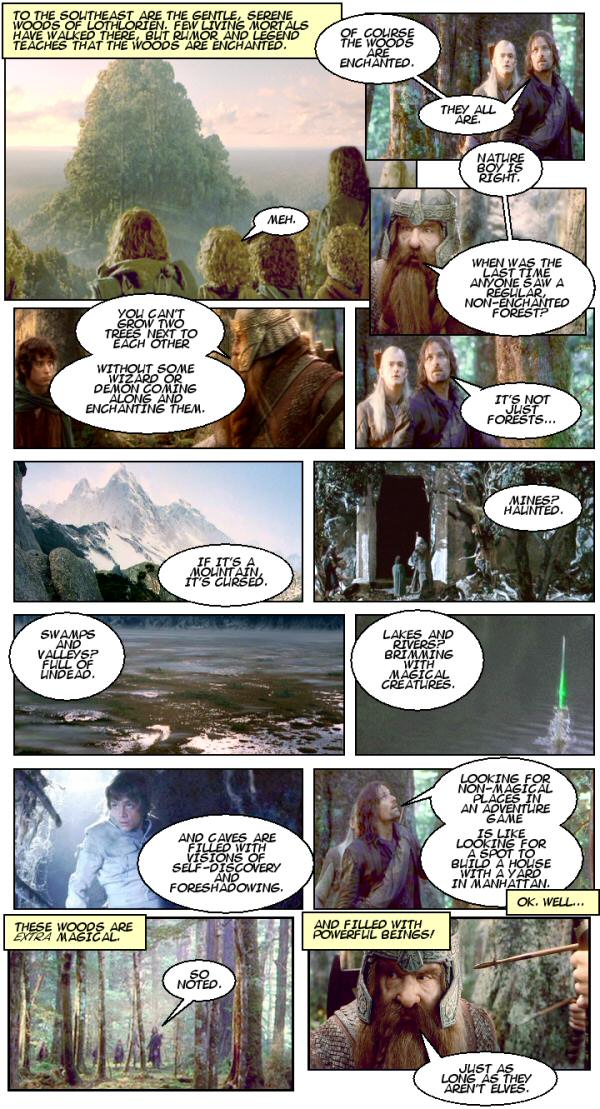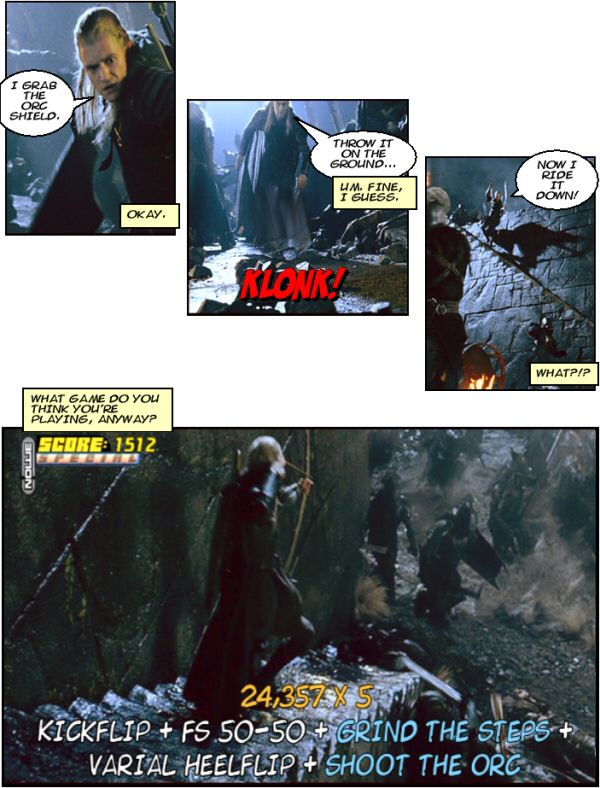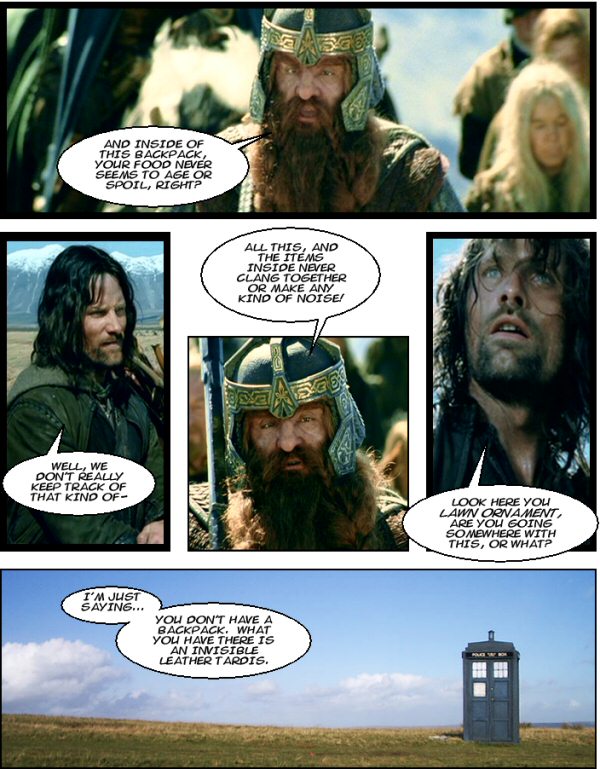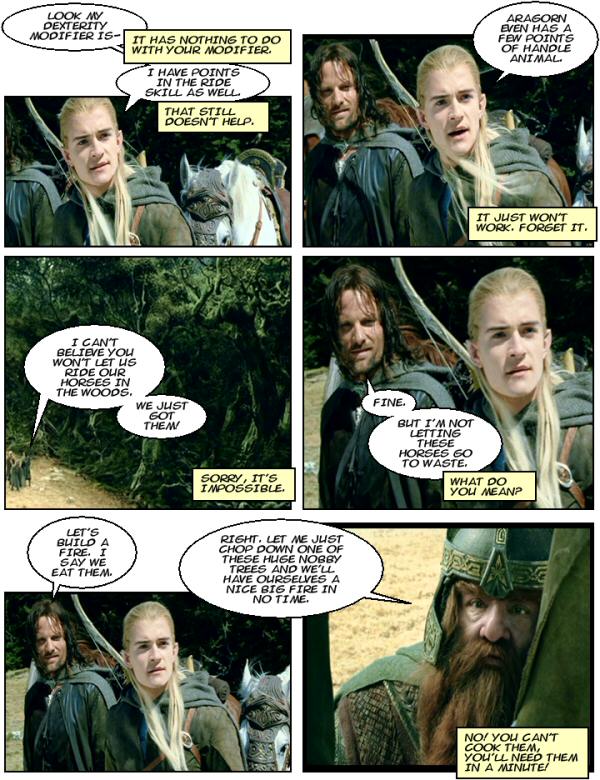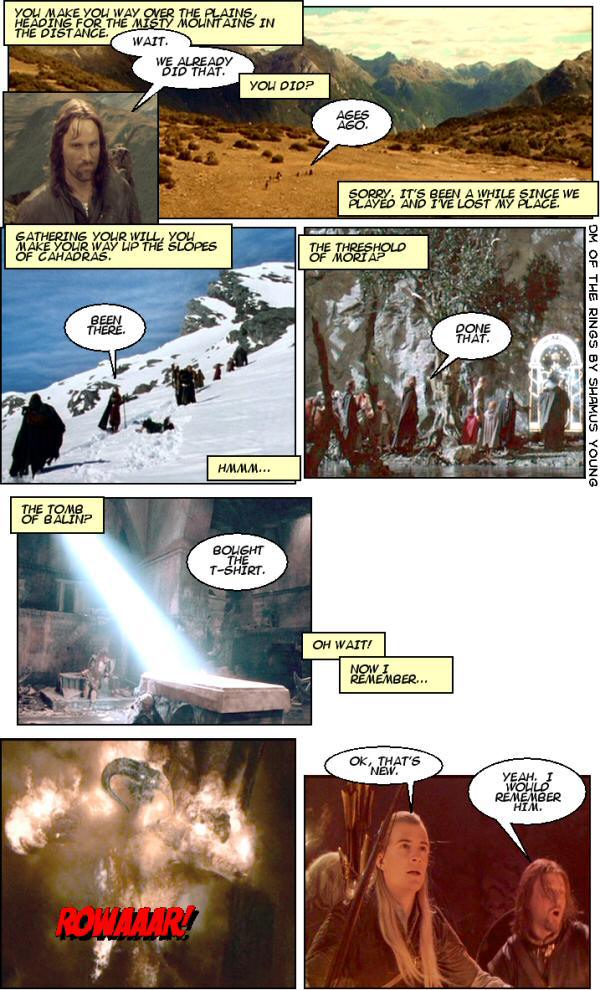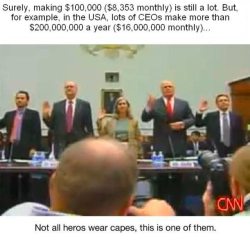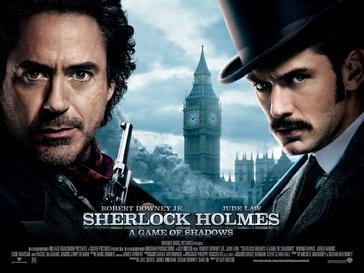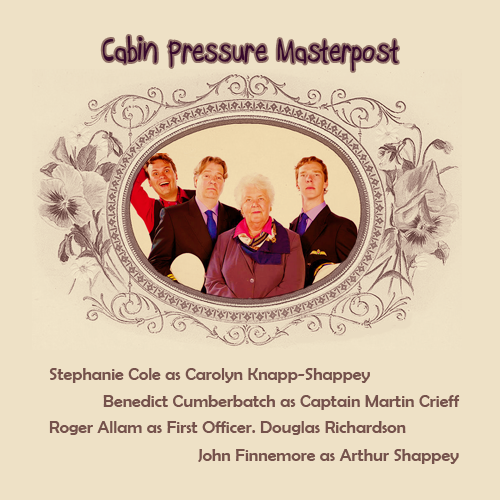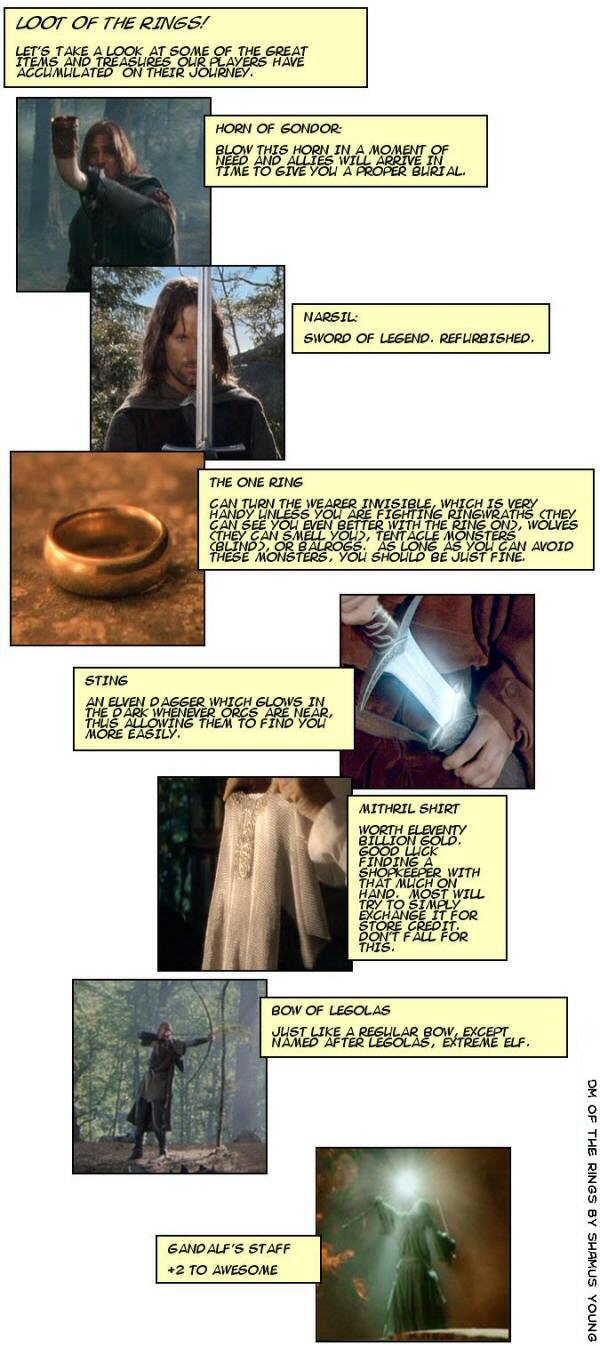 |
Tuesday, April 3, 2012
Wednesday, March 28, 2012
Dune, mini-series by John Harrison, 2000.
Summary: Based on the novel Dune by Frank Herbert. As the human Universe revolves around the use of spice, only produced on the sand planet Dune, a political battle engages between its most powerful leaders for its control.
Comment: Longer and thus more faithful to the novel than David Lynch's film, it is also more easy to follow for those who have not read the book. However, as the budget was lower, it lacks in visual impact. Moreover, it is more of, at least from my point of view, an explanation or a depiction of the events rather than a truly inspired work. Plus, some characters were not casted that greatly and they acting lacked a bit. So if you already like Dune, you might stick to the book, as this series does not provide anything more than the novel; if you don't know Dune and don't want do read the book, you can try it up. It's not bad. Just not... Dune.
If David Lynch's vision and budget had met John Harrison series's length and explanations, the novel Dune could have had a cinematographic true equivalent and (out)matched films such as the Star Wars franchise. I dream about that at night.
Tuesday, March 27, 2012
Mars Attacks! by Tim Burton, 1996
Summary: When alien ships are spotted surrounding Earth, the president of the USA has to decide how to face such a situation. Are they a threat, or a hope for greatness, for a better world, for change? But then they kidnap a chihuahua, a fried pidgeon and a journalist.
NB: the Cast is amazing! I'll quote wiki-wiki on that -"Mars Attacks! stars an ensemble cast, which includes Jack Nicholson, Lukas Haas, Annette Bening, Jim Brown, Pierce Brosnan, Sarah Jessica Parker, Glenn Close, Martin Short, Jack Black, Natalie Portman, Danny DeVito, and Christina Applegate."
Comment: All I knew about this film was: "funny looking aliens invade Earth and are killed by country music"; so I thought it was a comedy. Oh-My-God it's so NOT a comedy.
Filled with black humour, maybe. With plenty of candy-like sceneries and B movies references. But it is also an horror movie where Martians look like death with a brain and where you never know who's going to die, a satire of human behaviours and beliefs, a kind of philosophical questionning ("are 'advanced cultures' really peaceful?" or, "are our cultures really 'advanced'?", or "is 'Do Martians have two sexes, like we do?' such a relevant question?). The coolest feature of this movie would be that we still don't know why aliens act like they do. We don't understand (quite litteraly). It is a real clash of civilisations. Or maybe, just an invasion as seen from the losing side -just as, among many examples, the invasion of America by the Europeans, when many indian people offered peace and only met death and cultural devastation.
The specials effects have aged, but that's no reason to avoid this movie -because the story and feelings and absurdity it conveys is of a must-be-seen category. I recommend to watch it once (and of course more if you want too).
Monday, March 19, 2012
Dune, David Lynch, 1984
I saw this movie once when I was a kid, and the Harkonen terrified me; and I can say now that I've rewatched it that I'm still heavily disgusted by them now, even though I don't scare that easily in front of fake screen-monsters.
Also,
I had read and loved the book before watching the movie, so I was a bit
disappointed it wasn't perfectly following it (I love the book so much I
wanted to see it ALL on screen). Still, it's a good adaptation of it,
even though the story might get a little confusing for those who have
not read it.
On the bad Side:
- What's wrong with your Fremen clothing? You're in the freaking desert, wear some sort of a hat, damnit!
- I'm not fond of off-voices explaning stuff, and there is one here... whose part is HUGE.
- The story, at times told in quick, explanatory flashes, is often confusing.
- I am not crazy about the way it's shot, even though it only bothered me at times (static, or not underlining enough the mind flow of the characters), but it's a matter of taste, and some scenes are plain amazing.
 |
| Paul Muad'Dib. |
On the good side:
- Sure, the special effects and blue screen have aged, but they were not used that much and, where their support the story, it is not a bother.
- Gorgeous designs, beautiful setting, a real treat to the eyes; the atmosphere is splendidly rendered, even the clothing is fit to the mood of the scene or character (like Jessica's hair).
- As in the book, where most of the fights are battles of mind, many of the dialogues are actually thoughts.
- Kyle MacLachlan is too old for Paul, but is still making a very good job out of his character; moreover, the cast fits the original characters quite well.
 |
| Little Alia and the Gom Jabbar |
General opinion: a beautiful film (can I stress that enough?), that Dune readers will enjoy but which could be a bit difficult for those unaquainted with this amazing universe (but why would anyone NOT read Dune ?!).
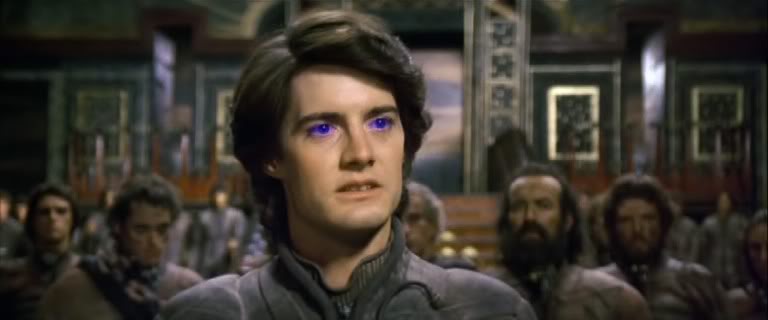 |
| Paul again (yes, I like him) |
Maybe someday, if we're very very lucky, Dune will be blessed with a decent adaptation as a series, like Game of Thrones, or a string of movies like the Lord Of The Rings.
The challenge then would be to transmit the atmosphere of the book where much happens in the mind of the characters and allows us to see reality from a subjective point of view (like when, in the movie, Lady Jessica reads Dr Kyle's mood), and still render the epicness of it all.
Also, the choice of subtle actors would be crucial, as most of the characters have utter control of their body and tend to restrain their expressions. We could see that in some scenes of this film, but it wasn't fully exploited.
That being said, good day to you, I'll be in my emo closet, daydreaming about a perfect Dune adaptation. Or rewatching this one!
Wednesday, March 14, 2012
Kony 2012
Kony 2012 is a moving viral video made by Invisible Children, an association who wants to make people aware of the crimes commited by Joseph Kony in Africa, which would eventually lead to his arrest and trial.
What does that mean?
If Kony was arrested, his kidnapping and turning kids into slaving
soldiers would stop (among other things). But if this is done through
violence, many of his bodyguards and soldiers would fight and be killed
-yes, the children ones (among other things, too).
So let’s face it, arresting Kony is not going to be pretty.
To have further insight, you can read articles which criticize the Kony 2012 campaign, such as Let’s keep it about Joseph Kony, by Grant Oyston (ou ici une critique en français), and of course the response of Invisible Children on their website (here).
Making people aware of the Kony situation might also make them more aware of African issues in general, which is a good thing. Still, keep in mind that Invisible Children are an association for awareness about Joseph Kony, not direct aid.
Here’s how, according to them, the donations they receive are used:
So if you want a positive result, here’s what I suggest (and I’m flawed):
- Do something (because a result only comes from an action)
- If you don’t want to waste time, pass on this video with the comments.
- If you have time to spend, find out information about Kony and make out your own opinion.
- Act accordingly, at your level and through what you’re good at -reblogging or commenting on the Net, maybe? Not all of us are geniuses/famous/millionaires…
Remember that peace starts at home. They are Konys evewhere,
from dictators to mere bullies, even if they’re not all as destructively
powerful. Maybe you can’t help with that, but you can help with one thing: don’t behave like a Kony.
When I say peace starts at home, that means peace starts with you.
That being said, thank you for your time, I hope you’ll have a nice day : )
Monday, March 5, 2012
Why I Am A Male Feminist by justtracey
And I wonder: we (women) all have fathers and brothers and boy friends that we might know or trust, and all men are fathers or brothers or friends that can be known and trusted- so why are we always so afraid?
Is it because we've all expericenced a kind of sexual assault -on any level- why would men do that to us? Why do they forget about their mothers, their sisters, their girl friends? How do they?
“The following day, I attended a workshop about preventing gender violence, facilitated by Katz. There, he posed a question to all of the men in the room: “Men, what things do you do to protect yourself from being raped or sexually assaulted?”Not one man, including myself, could quickly answer the question. Finally, one man raised his hand and said, “Nothing.” Then Katz asked the women, “What things do you do to protect yourself from being raped or sexually assaulted?” Nearly all of the women in the room raised their hand. One by one, each woman testified:“I don’t make eye contact with men when I walk down the street,” said one.“I don’t put my drink down at parties,” said another.“I use the buddy system when I go to parties".“I cross the street when I see a group of guys walking in my direction."
“I use my keys as a potential weapon.”
The women went on for several minutes, until their side of the blackboard was completely filled with responses. The men’s side of the blackboard was blank. I was stunned. I had never heard a group of women say these things before. I thought about all of the women in my life — including my mother, sister and girlfriend — and realized that I had a lot to learn about gender.”
| — | Why I Am A Male Feminist Posted on June 15, 2011 by justtracey |
Wednesday, February 29, 2012
Painted With Words, BBC Van Gogh, 2010
I made this video for it because I couldn't find a trailer that I liked.
Summary: An original biography of Vincent Van Gogh, told through his letters to his brother Theo.
Comment: This a story of Vincent Van Gogh, whom I've always loved, performed by Benedict Cumberbatch, whose acting talent I greatly admire; as Vincent' story is quite sad, I knew I was going to cry. So I did.
The best compliment I could give to this show is that it made me re-discover Van Gogh and his work. It shows him as such an art loving, admirably hard working person, more preoccupied with art than with fame and the social behaviour needed to achieve it, and still yearning for some recognition of his talent. It also shows his generosity and whole heartedness, his passion, both admirable and scary, his taste in absinthe and prostitutes, his dealing with "mental instability", as we call it...
The second thing to say is that it is not a typical biography, because the different characters directly talk to us, viewers, very naturally, as if speaking with someone watching you from the other side of a TV was totally normal (wait- is that why I always speak to my screen?)- and because it's told only in Van Gogh or Theo's words, from their letters to each other. So it's a bit of a mix between a biography and a documentary, a "drama-documentary", according to the BBC.
| Sorrow, sketch by Van Gogh. |
Tuesday, February 28, 2012
War Horse, by Steven Spielberg, 2011
Summary: Joey, a strong, beautiful horse raised by the son of an endebted farmer, is sold to a soldier and from then, passes from hand to hand, changing owners through World War I.
NB: The plot is based on the 1982 children's novel War Horse by Michael Morpurgo, but this kind of story was initiated by Black Beauty, the 1877 novel by Anna Sewell that tells the story of a black horse who also keeps changing owners -only this is Black Beauty turned alezan and gone to war. The other main difference is that Black Beauty was meant to denounciate the bad treating of horses through different examples, and that in War Horse (the film) Joey is more of a guideline to the storytelling of war, even though Joey has some personnality to him.
Comment: This seems meant to make one tear (I cried a lot), but it's not realistic enough to be convincing. Let's say the ending (beginning and middle) is a bit Disney-like. I guess it's meant to be some sort of family movie, and its plot is too shallow and sentimental for my taste.
On a more positive side, some beautiful scenes and sceneries,
especially the charge through the woods and Joey's race through no-man's land later
on -I've always enjoyed watching a horse run. I also loved the scene where Emily appears for the first time, reflected in the eye of the horse.
The fact that Joey is made into an actual character without having him speak is great, though they turned him into some sort of a magical horse for that (he can understand German people discussing from quite a distance -he's english for the Queen's sake!). The horse acting is quite extraordinary, and used a dozen actor horses overall for Joey (see the No Animals Were Armed post).
Apparently this film is also a bit of a pastiche of other movies, maybe Joyeux Noël by Christian Carion for the episode of the wire entangled horse freeing, or some Gone in the Wind colors for the final scene. As I'm not a war movie specialist (war? noooo! *runs away crying*) I can't really think of many others, although I'm quite sure there're lots of references in it.
Not a bad film, very good actors, beautiful filming, but not exactly my cup of tea (maybe because I'm not fond of sentimental family movies, or perhaps because I don't drink tea). Still, you might want to watch it: the horses could get through to the Oscars.
Monday, February 20, 2012
Haruka Nishimatsu's way: long-term solutions versus capitalism
His philosophy is that "he's just like everyone else trying to make it
through Japan's recession, is why he takes the city bus to work, eats in
the cafeteria with his employees and strolls through the operations
room at the airport. When the company looked to cut costs, he eliminated
every single expensive perk of his job. He took away the corner office
and chauffeur. Then he slashed his pay dramatically, so that in 2007 he
made less than his pilots."
"He points to corporate culture as the long-term solution. Like the
AIG bonuses "shocked" him. "It's like they're from
another planet," he says.
A lesson of this recession, he hopes, will be that corporations don't
solely pursue profit and instead focus on the long-term financial
health of the company and employ people and help society. Together with
shared sacrifice, he believes, the global economy will recover - but
only if everyone from the CEO to the entry-level employee works
together."
There
is an article about those facts. Of course this wouldn't happened in
North American culture, which is not taught to think this way (as is
pointed out by euclase here).
Still, I think that long term business, as many asian cultures see it,
is a better solution than siezing the day and making it spit out money. We should learn of such a man.
Sunday, February 12, 2012
Fortysomething - series by Nigel Williams, 2003
This comical UK series of only 6 episodes has an amazing cast -I'm thinking of Hugh Laurie and Benedict Cumberbatch in particular, with a guest apparition from Stephen Fry.
Summary: Paul Sliperry can't recall when for heaven' sake was the last time he had sex with his wife. Lots of stuff seem to drift off his mind, lately. Meanwhile Estelle, Paul's wife, gets fired from a job she never worked at. Meanwhile their elder son, Rory, finds it hard to be both perfectly nice and not getting taken advantage of by everyone, namely his brother Daniel, who's decided to sleep with his girlfriend. Meanwhile the youngest son, Edwin, finds it clever to buy a bunch of fridges to decorate the garden. Will Paul find out when he last had sex without losing his sanity?
Comment: This show was really fun to watch.
... Do all british characters named Rory get such a wonderful personality?
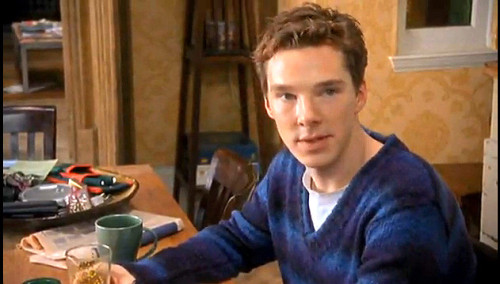 |
| Fortysomething's Rory. |
Monday, February 6, 2012
Temps Mort - Court Métrage
Realise par: Micael LIMA BARBOSA, Laura SABOURDY, Paul D'HERBEMONT
Musique: Jerome Freund, Yann Ledecky, Pierre Fabre
Son et Mixage : Jose VICENTE et Yoann PONCET (studiodesaviateurs.fr/)
Enregistrement Comediens: Lionel GAILLARDIN (bonsaistudio.fr) temps-mort.com/ Ecole Superieure des Metiers Artistiques. Toulouse. France. ESMA. 2011
Thursday, February 2, 2012
The Sentinel - TV show, USA, 1996-1999
Summary: The Sentinel is a four seasons TV show of 65 episodes about Jim Ellison, a cop and former ranger, who developped enhanced sensitivity after a year long stay in the peruvian jungle. When he comes back to north-american city Cascade, he meets Blair Sandburg, and anthropology student who decides to use him as his thesis subject as well as helping him figure his new abilities, acting as a spiritual "guide". Together they start solving crime in a very hollywoodian manner.
The plot doesn't goes round a whole season, but episode per episode, so we can't see any character evolution, even though the Sentinel / Guide relashionship gets a little more background through the series. Basically, an episode contents:
- Oh my Gosh! Murder. And apparently north-american towns can't pass the day without an explosive gun fight ("Is it just me or is Cascade the most dangerous city in America?" - Jim to Simon, Dead Drop).
- Oh my Gosh! Funny Blair jokes. And other jokes. And nice puns. Yes, some quite nice puns indeed.
- At least one sexy lady. Often useless or in danger, she almost always ends up feeling attracted to either Jim or Blair. Or both, in Cassie's case, but it's cool, and so is she.
- Lots of cop show clichés sentences told in the north american I-know-better-and-I'm-the-alpha-male angry way. It seems like nothing is in the USA but a power stuggle.
- Jim uses his gifts as a Sentinel / refuses to use his gift as a Sentinel, but ends up using it eitherway. Funnily enough, he only uses it once in a while; of course, if he used it always, as intended, there would be no investigation, right?
- The sexy lady / Blair / a poor chap / at times Simon even Jim, is taken hostage (up to three -sorry, four times per episode for Blair). That's normal; there aren't much other cops or even main characters in the show to kidnap.
- A car/motocycle/helicopter/horse/peruvian indian/boat race. Maybe an explosion or two.
- The hostage is saved thanks to Jim's buldging muscles and Blair's heartwarming good will.
- The criminal is punished and yeah for happy endings! (often concluded with a joke from either Jim or Blair).
Commentary: I watched the show because of a fanfiction, "Chameleon" by velvet-mace: I wanted to learn about Sentinels and Guides. Then I watched the show for Blair, because he looks totally innocent and clueless, and that is fascinating. But actually, I never really watched the show; I always had something else to do on the side, it was my background noise for drawing and stuff... And thank God for that, because I would have died of boredom and ghost-sued this show for it.
I mean, no wits, no real investigation, everything's so easily decided and done, and all for the sake of manly men and a race chase (with aged special effects). Jim's character is the typical north-american superman, the rightful guy who never does the wrong (according to north-american standards) and often looses his shirt.
So basically... I started watching the show because Blair was cute (even his way of beating up villains is. I wonder.). Then I watched the rest of it because it wasn't intellectually demanding and that works fine as background sound.
So yeah, it's enjoyable, I suppose. Just certainly not one of my top-noch series.
So yeah, it's enjoyable, I suppose. Just certainly not one of my top-noch series.
- Here's a website dedicated to this TV show
- And a Sentinel episode guide.
- And a critique en français, plutôt complète à mon avis.
Okay, I confess, I wasn't being totally honest, and I did quite enjoy the show. And my main reason for watching it was not that I thought Blair was adorable (even though he is). Actually, I watched The Sentinel because I thought it might be about hypersensitive people, for which the Sentinel myth could be a metaphorical image. And the reason why I'm not happy about the series, it's because it's SO DAMN NOT LOGICAL.
I'll explain.
I'm not even sure hypersensitive people have enhanced senses. Maybe they have normal senses but, contrarily to most people, they do use them. Maybe they really do feel things with more intensity. The common factor to those theories is that hypersensitive persons are more in touch with their perception than most people.
I'll give you a for instance -six to be precise.
- And a Sentinel episode guide.
- And a critique en français, plutôt complète à mon avis.
EDIT
I'll explain.
I'm not even sure hypersensitive people have enhanced senses. Maybe they have normal senses but, contrarily to most people, they do use them. Maybe they really do feel things with more intensity. The common factor to those theories is that hypersensitive persons are more in touch with their perception than most people.
I'll give you a for instance -six to be precise.
- Touch: I always feel like there is burning lava running my veins and that there's a needle piercing each and every single cell of mine. When people touch my bare skin it feels like burning, unless I'd got time to prepare myself for it and block it out. In spring, when the trees and mother nature wake up, I feel exhilarated; and when they're awake, it's almost like earing them whisper. When the sun strokes my skin I can feel pleasure bloom instantly from its warmth and cries of delight raising from my cells.
- Sight: My sight is really blur. But when I'm wearing glasses or lenses, I see so many details at the same time I usually can't focus on the bigger picture. I almost never remember a new face or how people are dressed, but I'll remember the way the sun shined though they ear, the dazzling patterns of hair on a hand, the turned out inside of a pocket and the faint traces of gum still sticking to it. And it fascinates me. In museums, I could stay hours looking at an artwork, focusing on each single stroke of paint or every other tiny detail -or maybe on a crack in the wall.
- Earing: Loud noises make me cry. I get panicked and confused when there are too much things going around at the same time, such as a bunch of people having distinct conversations in a kitchen while making diner. When I go out, I'm almost always plugged to my Ipod so I don't get scared. I've trouble sleeping in a noisy environement, mainly because when I hear a sound my brain has to analyse its cause and thus, keeps me awake. The vibrations of instruments during concerts or when someone plays the guitar make me fall in love; I can feel my body releasing bunchs of love, pleasure, well-being -I didn't understand it at first, but I've come across a scientific article explaining that those vibrations tended to do that, which explains both the groupie factor and my condition.
- Smell: I smell things like a dog. Not as well as a dog, but as a dog, yes. I smell food before I buy or eat it, I usually raise my nose to get a lead on some scent that caught my attention -some smells get me so hooked up and even horny at times I almost act crazy on it, trying to figure out where they come from, why they do smell so delicious to me- I almost lose it, it's fun. And nasty smells make me wanna run away.
- Taste: I need subtlety. I can't stand spicy food, or food that's too sugary, too salty, too something. And I usually feel the kind of thing my body needs me to eat next -meat, vegetables, sugar, water- too bad I don't comply. And I often feel compelled to lick stuff to know them better, but apparently licking people is not tagged as sane.
- Psychic abilities: No kidding. Or, yes kidding, because they're not psychic at all, actually, they're just logical consequences of what is summed up upside. Thanks to all the data collected by my senses, I'm quite a good judge of situations -even though that doesn't mean I don't make mistakes (gosh, I hate being wrong). Sometimes I can even map out the outcome of my relashionship with someone for at least the year to come. Of course, clever people can do that too, but maybe not just through a "hunch".
WHAT. A. JOKE.
Let's put aside the differences between Sentinels and hypersensitive people - Sentinels are a fictional myth. Let's just look at Jim as a Sentinel. I can't speak for every hyper of course, but it doesn't seem logical to me that someone whose senses are that sensitive acts as Jim does. He doesn't act as if he's in tune with his senses. Of course, that's supposed to be the reason why he needs a Guide. Still.
JIM - Basically, if you're a cop, and a Cascade cop at that, Cascade being apparently the most dangerous fictionnal town ever, you'll have to do the chases, and the shooting, and the shouting!, and all that stuff that's so noisy and hurtfull it makes you want to quit -allright, allright, Jim thought about quitting in S1E1. But he chose the hell of an intense job to begin with.
HYPERs - When everything is so damn intense, you don't usually want it to get worse. So you might chose a calmer job, like, paintor, or, cloud-maker in a bubble factory. If you're an adrenaline junky, thief. Alex has a logical job: all smooth and shadows.
JIM - He barges in buildings like a raging bull. Of course, breaking a door is worldly reknowned as so damn noiseless, as well as guns, explosions, cars, boats, choppers and all these stuff they use for their blue-screen chases. Of course breaking a door doesn't hurt, 'cause it just hurts the door, not the body you've used to bang it through. And you don't feel the bang spreading from your skin to your insides -well, of course you don't, if you're not an hyper.
HYPERs - Not against a nice chase once in a while, but only if they've calculated that their chance of survival is at the very least existent. Like, they might not grab the leg of their ennemy's chopper when it's ascending. (At least Jim did a sensible thing there -he handcuffed his hand to it: this way, he'd be a hindrance for his ennemies even dead, bwahaha. Nicely played, Jim.)
JIM - He always stands in the center of a room. I know it's for the cameras and all, and that he's a superhuman supersoldier, but that drives me crazy!
HYPERs - When an hyper walks into a room, they instantly analyse it: strategic standing spot (usually the one they use, where they can watch the whole room, preferably back to a safe wall or corner, near an exit), strategic cover spot (in case all hell breaks lose), entries (doors, windows, trapdoors, eventual secret doors through unusual furniture), potential shields (bar, table, laptop), potential weapons (everything is a potential weapon). Persons: potential ennemies (and closeness range to potential weaponry, shields, strategic spots), potential allies (same as for ennemis). An hyper detects potential ennemies and allies in a room full of strangers by scanning their body language -hypers can be a hell of a lie detector. I've read that hypersensitive animals (it's not a humans only club thing) usually live longer than others -I wonder where scientists get that, we all probably die of stress.
The touchy thingy thing with Blair is okay though, because touching people you trust and love is so delightful, it feels like discussing with them on a deeper level, body whispering secrets to another body, cells exchanging information and tips and maybe even phone numbers -normal people should feel this, it's electrifying, like gold-making alchemy in-between skins, like making love without the funny sticky sex part. It makes you feel at peace and calms the burn inside.
To conclude, I'll say that Jim being a Sentinel is like ice being fire, it just doesn't match. Being conscious of your sorroundings doesn't turn you into a wild beast -it turns you into a very self-conscious beast. A beast who's very aware of everything, and of everyone. Not a simplified panther -panthers don't just hunt and hump. Only average humans would think that.
At least we had the weird psychic part going on, a very poor but very true symbol of how tuned up to the universe, or "god", hypers can be.
So yeah, I was disappointed, because I thought The Sentinel was about my people, while it was about "manly" hunts and rightful cops. Still, it also looks like a kind of cavern painting, or a fairy tale to me: average people depicting what they don't really get with symbols -and natural beings like hypersensitive people suddenly turn into magical "Sentinels".
Which makes that show very interesting to watch... from an anthropological point of view. Aaand we go back to me liking Blair.
| But look at that here's so cute. Me just wanna hug. |
Saturday, January 28, 2012
Sherlock Holmes II, Game of Shadows - movie by Guy Ritchie, 2011
Summary: Sherlock Holmes faces his deadliest ennemy, Pr Moriarty, while his companion Dr Watson faces a greater challenge even: getting maried to Mary while Holmes gets in the way. For those who've read the Canon, you know what Reichenbach means - and they will make a stop by it.
Personnal Opinion:
I hadn't been a fan of the first movie, even though I think J. Downey Junior and Jude Law made a cool impersonation of Sherlock Holmes and Dr Watson. I thought the story lacked in cleverness and that Delowney was a bit too unshaved for my taste.
However, I enjoyed this movie. I'm still not quite at ease with action taking over most of it and with submachine gun fights in an steam punk atmosphere, but if I just see this film as a huge fanfiction rather than as an interpretation of the Canon, then hell does it kick ass. The slow motion scenes are gorgeous, and their use in showing how Holmes analyses fights did not get superfluous.
Pr. Moriarty (Jared Harris) was amazing, quite classic but really cool -his eyes, they're always as cold as a murdering knife... I'm not happy with the depiction of him being a villain being explicitely linked with him being pro world wars - I think that too classic a "he likes world wars so he's nazi-to-be bad" trope. Why does the greatest villain of them all always have to be a pro war opportunist?
The character of Mary, which I didn't like at all in the first movie, was well handled in this one, and it's not easy to make the wife of one of the sexiest characters on screen lovable to a crazed fan - but this movie was up to the challenge. The other main female character -Simza, played by Noomi Rapace (from Millenium) was cool too, and I have to say that I was really happy another one (no spoiler) got to disappear quickly from the movie - I don't like Sherlock Holmes flirting with people, that is just too unprofessional of him. Ah, yes, did I mention that we get to see Stephen Fry as Mycroft -naked?
I'm still not convinced by the story, its outcome is too improbable for my taste, but I've enjoyed the characters's relashionship (sorry Watson - partnership) and would re-watch the film just for that. The Reichenbach fall was a really good moment, and the exact last second of the movie was such a HUGE satisfaction that I'm now going to run naked in the snow.
Tuesday, January 24, 2012
Sociological images
This website discusses pictures and images we see everyday without paying enough attention to them and to their cultural meaning, especially in the gender field. Here are for instance some interesting posts:
Monday, January 23, 2012
Cabin Pressure - BBC radio 4 program by John Finnermore
Summary: MJN Air is a small, unique plane company managed by Carolyn, stewarded by her dumb but enthousiastic son Arthur, piloted by the unfortunate but very dedicated Martin, co-piloted by the cynic and quite dishonnest Douglas and rided on by passagers blissfully ignorant of that all.
Comment: It's very funny, full of english humour... Still ongoing though, so we're expecting a fourth season in 2012!
Saturday, January 21, 2012
Hawking - BBC TV movie by Philip Martin, 2004
Summary: This movie tells the debuts of Stephen Hawkins in physics, as he starts working in Cambridge University and discovers he is getting paralysed. We can see him struggle with his condition as well as with the Big Bang Theory, in a world which hasn't really thought of this possibility yet.
Comment: I won't judge this movie from the point of view of someone who knows Mr. Hawking but as a mere movie watcher. It is a classic biopic, of quality, as expected from the BBC. The ending feels a bit rushed but Mr. Cumberbatch's performance is astonishing and the story very moving.
Alien - movie by Ridley Scott, 1979
Summary: the crew of a commercial space ship, the Nostromo, is woken up early during its journey to Earth because it received a transmission and is due to investigate any possible intelligent lifeform there is. After landing on a nearby planet, they discover an abandon ship which had apparently turned into some sort of alien nest. A member of the crew gets attacked and somewhat impregnated by an alien creature and is brought back into the commercial ship for medical care. However, the alien turns out to be a very resilient lifeform, which forces the rest of the crew to fight for survival.
Comment: The storyline is basic, but it works out pretty well as the atmosphere is really bleak and the sceneries by H. R. Giger absolutely magnificent. The alien itself, the abandoned vessel, the droid, even the space suits, have a very disturbing organic feel to them and look like wonderful works of art, and the special effects didn't lost their appeal nowadays (even though the "chestburster" puppet looks quite funny). For once the heroes are not total idiots and think before acting, even though I wouldn't go as far as to say they're always very logical in their actions. To conclude, I don't wonder why this movie is considered as a classic.
Hot Fuzz - movie Simon Pegg, 2007
Summary: Nicholas Angel is a brilliant police officer. So brilliant, in fact, that he makes the London police look bad: his superiors decide to send him to the country, in a town with the lower criminality rate of all England, Stanford. On the other hand, the accident rate of Stanford is quite high...
Comment: This is the second movie of the Blood and Ice Cream Trilogy (the third movie, The World's End, is due to air in 2014. It successfuly parodies both horror and action movies. I would recommend it to anyone who's into parodies, fun and a bit of gore. No, wait, sod that -I would recommend it to everybody.
Friday, January 20, 2012
J. Edgar - 2011 movie by Clint Eastwood
Summary: Leonardo Di Caprio relates in this biographic movie the public and private life of J. Edgar Hoover (1895-1972), who created the Bureau of Investigation and then the FBI, and controled it until his own death. He is depicted as a man with strong determination and morals principles (even though some of those principles are nowadays quite not-that-moral anymore), a pronounced taste for organisation and scientific rigour (almost as a real life Sherlock Holmes), a very strong link with his mother, and homosexual tendencies (he is the "Johnny" from Truman Capote's "Johnny and Clyde" expression, Clyde Tolson behing his first man). Through this movie, we take a glimpse into the USA from the prohibition period to Nixon's arrival to the presidency.
Opinion: I don't know if this J. Edgar really resembled the one who did actually exist, but this movie and Di Caprio performance do give his character a real-life taste. There's nothing absolutely stunning about it, but it still makes quite a nice story and a convincing portrayal of a character. The narration is a bit confusing though, and the aging make-up quite disturbing (but again, we haven't seen a totally convincing one yet). I'll say it's worth a watch if you're into biopics, but you might want to inform yourself about J. E. Hoover nontheless.
 |
| Picture of the real J. E. Hoover. |
Saturday, January 14, 2012
The Private Life of Sherlock Holmes - movie 1970
Summary: A woman appears at Mr. Holmes's door, having no idea of her name nor even of her reasons of coming. Apparently, she'd been the victim of attempted murder and nearly drowned... Mr. Holmes decides to take the case.
This movie adresses directly some of Holmes most controversial habits, such as his addiction to cocaine and his sexuality. It also questions Dr Watson's scriptures by constantly doubting their precision and the fact that Dr Watson had romanticised Holmes' adventures and maybe left his unsuccessful cases aside.
Holmes is depicted just as in the Canon: witty, mischievious, full of life and humour... but still elegant and very british (also not that keen of conventions) in behaviour. Watson is not that endearing unfortunately, being used more as a comic relief than as a valid companion to such a clever man, even though he does speak his mind and is not just an admirative tool of Holmes'. Mycroft's fans will be pleased to notice his presence in the movie and the importance of his part. Of course the overall acting is quite different from our day's, quite theatrical I'll say.
Personal opinion: This is one of the best interpretations of the Canon I've seen so far. I'm quite sure Sherlock's fans would enjoy it immensely. I might even venture to say that the writters of BBC Sherlock have probably inspired themselves from some parts of this movie -or maybe good interpretations of the Canon can't help but look alike, just as siblings somehow look like each others.
Thursday, January 12, 2012
Shaun of the Dead - 2004 movie
Shaun of the Dead: 2004 British zombie romantic comedy.
Directed by Edgar Wright,
Starring Simon Pegg and Nick Frost. You might recognise Martin Freeman as Declan as a bonus.
Shaun's life is a total disaster: he spends his life playing video games with his friend Ed, forgetting about his mother's birthday (he hates her new husband) and his girlfriend's anniversary (she dumps him). On top of that, he's disrespected at work and exasperating his roomate.
However, a zombie apocalypse arrises just in time to give him... well, even more trouble. He thus decides to go fetch his mum and ex-girlfriend to bring them somewhere safe, namely, his favourite pub. Of course other people tag along -such stepdads, friends and more zombies.
Comment:
I'm not fond of gore and horror movies, but this was fun as hell. I enjoyed it as much as Braindead -probably more as it was a tat less "hollywoodian" and the plot more subtle, or more British, I don't know. I'll recommend it to anyone who likes a good parody and who's not afraid of seing people being teared appart.
Sherlock Holmes - 2009 movie
I wasn't fond of this movie at first. Neither at second, actually. But it's not bad, it's not bad at all; I'm just a bit of a purist.
Sherlock - Russian series: The Adventures of Sherlock Holmes and Dr. Watson
The Adventures of Sherlock Holmes and Dr. Watson (Приключения Шерлока Холмса и доктора Ватсона) was made by Soviet television and directed by Igor Maslennikov. It starred Vasily Livanov as Sherlock Holmes and Vitaly Solomin as Dr. Watson in lenght features cut into multiple episodes.
More details: here.
More details: here.
Episode list:
1979 - Sherlock Holmes and Dr. Watson
1980 - The Adventures of Sherlock Holmes and Dr. Watson.
1981 - The Adventures of Sherlock Holmes and Dr. Watson: The Hound of the Baskervilles.
1983 - The Adventures of Sherlock Holmes and Dr. Watson: The Treasures of Agra.
1986 - The Adventures of Sherlock Holmes and Dr. Watson: The Twentieth Century Approaches.
Global opinion:
If you like the Canon, you'll probably enjoy this adaptation. It's quite classic but nicely handled, and the actors have a kind of warmth to them. This Sherlock is a bit more into action and disguises than others, and Watson is not an admiring idiot of his but a real companion (in a non sexual kind of way, you perv'). You might notice the lack of budget in city sceneries, but that'll give you a glimpse to some russian city; why whine then?
Bonus: russian is a wonderful language, real music to the ears! As for the actual soundtrack, it was writen by Vladimir Dashkevich (thanks for buddy2blogger for having me notice).
Case of Evil - Sherlock Movie, 2002
I watched it because I thought the hero looked cute. What did I expect? A good Sherlock Holmes? L.O.L.
Let's be clear: I'm not against infractions to the Canon, if they're pertinent and well handled. Those clearly weren't.
- Sherlock is young: ok, all right, why not? He had to be young someday.
- He's brilliant, but no-one gets him: fine. A tat emo in this movie, but he's making his debuts as a detective, so maybe.
- He's a ladykiller: err, what? Sherlock, interested in women? Adler aside, he despises them and bodily urges. Did you go for lady killer? That would have been at least probable.
- He got into the investigation business to avenge family: NO. Sherlock Holmes is NOT an avenging family kind of person. In fact, aside from Mycroft, does he even care about family? About people, yes, maybe, a bit. Sometimes. But about persons he's chained to by society? Bah.
- He's against drugs. Sherlock. is. against. drugs.
- He's got morals. I am now officially crying.
-About Watson: he's a doctor. An (ex)military man? Well, if you believe he's still in shape to run, maybe. But Watson was often disregarded into Sherlock films, so that's not even a surprise.
-Moriarty... is not clever, just a vile drug dealer. I'm not even proceeding with this list anymore.
This is NOT a Sherlock movie. An action movie, perhaps, if you count as action a bit of firing at the end. This is the very classic story of the teenage-boy who seeks recognition from his father (who's dead, but conveniently reimplaced by Watson as a father figure), from society (by murdering bad men and banging women), from his loved-one (even though I'm not sure why he loves her, they've only met for one day and she's said like five uninteresting words to him -oops, wait, my mistake, she's pretty).
To conclude: Sherlock is a poor traumatised as a child genius, he sleeps with girls, he fights bad men, people eventually like him and come to think that he is a heroe.
Bad reason to watch the Canon be raped: Sherlock's pretty. (I did say it was a bad reason).
Good reason to watch this movie: as bad as it is, it suspect it might have taken a role into the recent turn of events concerning the modern interpretation of the Canon. A younger Sherlock, a more action-like movie about his adventures: isn't it what the 2009 Sherlock Holmes and the Sherlock BBC series are pointing at now? Maybe this was the first attempt to renew our interpretation of the Canon. The failed first attempt.
The last word: I won't even bother writing it myself:
"[L]et's just accept the idea that Sherlock Holmes needs to be sexed up and made relevant for a twenty-first century audience. Do writer/producer Piers Ashworth and director Graham Theakston manage to make an entertaining movie out of that? No. In their hands, Sherlock becomes a generic hero tortured by the past and Moriarty becomes a thug without any sort of air of mystery about him." Jay Seaver of eFilmCritic.
The last word: I won't even bother writing it myself:
"[L]et's just accept the idea that Sherlock Holmes needs to be sexed up and made relevant for a twenty-first century audience. Do writer/producer Piers Ashworth and director Graham Theakston manage to make an entertaining movie out of that? No. In their hands, Sherlock becomes a generic hero tortured by the past and Moriarty becomes a thug without any sort of air of mystery about him." Jay Seaver of eFilmCritic.
Wednesday, January 11, 2012
Monday, January 9, 2012
Subscribe to:
Posts (Atom)
